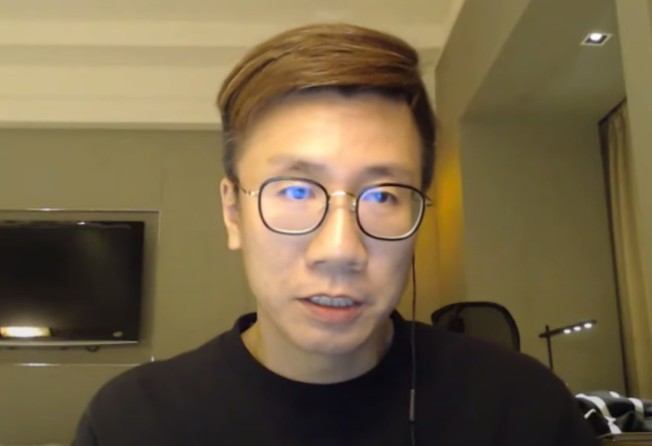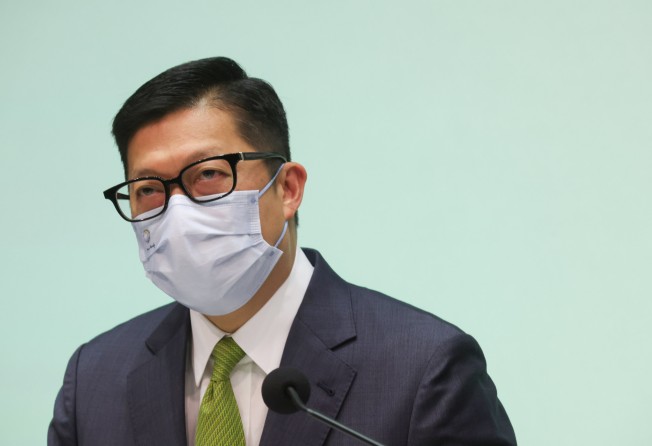
Hong Kong’s Security Bureau accuses former radio host of ‘disregarding the facts’ over opinion piece on minister’s ‘colour revolution’ remarks
- Article from Tsang Chi-ho questioned security tsar Chris Tang’s characterisation of recent local protests as early stage of ‘colour revolution’
- Small protests held at university campuses and in Hong Kong’s Central district in support of mainland Chinese demonstrations against Covid curbs

Hong Kong’s Security Bureau has accused a former radio presenter of “disregarding the facts” after he wrote an opinion piece that questioned a minister’s stance that protests linked to ones in mainland China showed signs of a “colour revolution”.
The bureau’s remarks on Friday were in response to an article from Tsang Chi-ho in local Chinese-language newspaper Ming Pao that took aim at Secretary for Security Chris Tang Ping-keung’s characterisation of city-based protests in support of those across the border as a potential national security threat.
“It is regrettable that the writer disregarded the facts, and even questioned the observations and alerts concerned,” a spokesman said.
“In the article, he deliberately downplayed the signs of instability in local society, and ignored the consequences of members of the public being incited to participate in activities suspected of endangering national security.”

On Wednesday, Tang said authorities had observed the emergence of local anti-government activities, some of which were carried out “under the pretence” of mourning victims of a fire in Urumqi, the capital of the Xinjiang autonomous region.
Protesters have blamed the country’s strict anti-epidemic policies for preventing victims from fleeing the fire that killed 10 people, triggering demonstrations in several cities and universities on the mainland. Beijing has rejected the allegations.
In response to small solidarity protests at university campuses and in Hong Kong’s Central district, Tang said the demonstrations were “highly organised” and in the “fledgling stage of a colour revolution”.
Tsang, a former radio presenter and host of axed television programme Headliner, used his opinion piece to ask Tang whether he was also referring to protests on the mainland in his remarks.
If the protests were not included in the minister’s remarks, then Tsang questioned why the incidents should be characterised differently from the ones in Hong Kong.
He also wrote that, if Tang did include the mainland protests, then it posed separate queries about how unrest had broken out in both Hong Kong and the rest of the country when the latter was considered to have a stronger sense of patriotism.
“Why would the mainland, with such a perfect patriotic environment, develop a fledgling stage of a colour revolution like Hong Kong?” Tsang asked.

In response, the bureau spokesman called on the public to “heighten their vigilance” against threats to national security, adding that Tsang had previously left Hong Kong to live in Taiwan.
“Some people will not give up and will always seek to endanger the security of our country and Hong Kong,” the spokesman said.
But Tsang told the Post he had only intended to ask why protests in Hong Kong could be considered different from the ones on the mainland.
“I didn’t understand, so I asked a question, you cannot say I was downplaying anything, nor did I say there were no repercussions for Hong Kong residents for breaking the law,” he said.
City authorities have previously complained about content published by Ming Pao, with police in October accusing artist Zunzi of creating a “misleading” cartoon that raised “strong concerns”.
Wong Kei-kwan, the cartoonist behind the pseudonym, has denied the accusations.